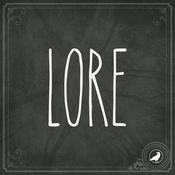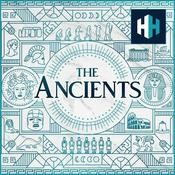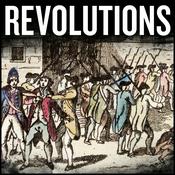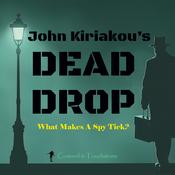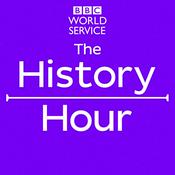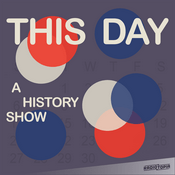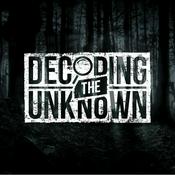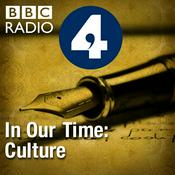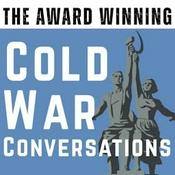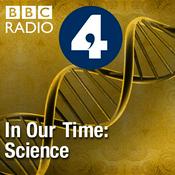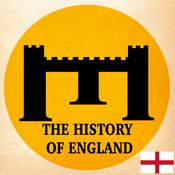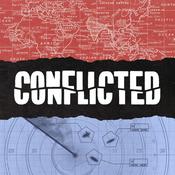207 episodes
- Twenty-five year-old bookseller Henry Knox, his 19 year-old brother Will, and teamsters led by John Becker, Sr., move a long “noble train” of 59 pieces of salvaged artillery from Fort Ticonderoga to Cambridge. The route crossed frozen rivers and the not-dreamlike Berkshire Mountains under unbelievably arduous conditions. As word spread, crowds of Americans would turn out to cheer them on, and serve them cider and whiskey.
The artillery, when hoisted to the commanding heights of Dorchester above Boston, would drive the British from their long occupation of that city, and they would never return.
It is a story of initiative, ingenuity, tenacity, survival, and charismatic leadership, and was perhaps the first miracle of many that would bless the American Revolution.
Map of the Noble Train’s route (not reflecting all the river crossings discussed in the episode):
Subscribe to my Substack!
X – @TheHistoryOfTh2 – https://x.com/TheHistoryOfTh2
Facebook – https://www.facebook.com/HistoryOfTheAmericans
Primary references for this episode (Commission earned for Amazon purchases through the episode notes on our website)
William Hazelgrove, Henry Knox’s Noble Train: The Story of a Boston Bookseller’s Heroic Expedition That Saved the American Revolution
Thomas M. Campeau, Major, U.S. Army, “The Noble Train of Artillery: A Study Comparison of Current Doctrinal Concepts of the Mission Command Philosophy in History.” (Master’s thesis, pdf) - Exactly 250 years ago, a rotund twenty-five year-old Boston bookseller named Henry Knox was riding his horse between Springfield and Worcester Massachusetts, on his way to George Washington’s headquarters in Cambridge. Washington’s ragtag, ill-equipped Continental Army had kept the British garrison under General Thomas Gage bottled up in Boston and Charlestown since the summer of 1675.
Washington had a whole load of problems, including insufficient arms for his men, many with expiring enlistments that threatened to shrink his force by half or more. He also had almost no artillery, just 12 small cannon that Henry Knox, among others, had learned to operate while training with the local militia.
Geographically, the Boston of that era was essentially a bubble of land connected to the mainland by an incredibly narrow neck at Roxbury. Two hills loomed over the city from across the water – Breed’s Hill in Charlestown to Boston’s north, which the British had captured at great cost in the summer, and Dorchester Heights, to Boston’s south, which the British had not captured.
This is why it was very important – world historically important – that Henry Knox, on that day exactly 250 years ago, was commanding a convoy of artillery comprising 58 pieces and weighing more than 60 tons, pulled on purpose-built sleds by teams of oxen and horses all the way from Fort Ticonderoga, 300 miles away, over rivers and the Berkshires, during the coldest winter in memory. Within just a few days those guns would be in Cambridge, and not long after that, on the sixth anniversary of the Boston Massacre, would be entrenched on Dorchester Heights and open fire on the city and ships below. Henry Knox’s big guns would drive the British from Boston, for good.
The tale of that “noble train” of artillery, as Knox famously referred to it, is one of the more astonishing stories of military innovation, indefatigable perseverance, and inspired leadership in a war that had more than its share of such moments. It was also among the most important, because it came at a desperate period when the Americans needed a victory or the entire project of the Revolution might have fallen apart.
Map of Boston in 1775:
Subscribe to my Substack!
X – @TheHistoryOfTh2 – https://x.com/TheHistoryOfTh2
Facebook – https://www.facebook.com/HistoryOfTheAmericans
Primary references for this episode (Commission earned for Amazon purchases through the episode notes on our website)
William Hazelgrove, Henry Knox’s Noble Train: The Story of a Boston Bookseller’s Heroic Expedition That Saved the American Revolution
Thomas M. Campeau, Major, U.S. Army, “The Noble Train of Artillery: A Study Comparison of Current Doctrinal Concepts of the Mission Command Philosophy in History.” (Master’s thesis, pdf)
Alexander C. Flick, “General Henry Knox’s Ticonderoga Expedition,” The Quarterly Journal of the New York State Historical Association, April 1928. - In the last episode on the Timeline, “Bacon’s Aftermath 1: Diplomacy and Conspiracy 1677-1685,” we looked at the political and geopolitical aftermath of Bacon’s Rebellion. This time we tackle the changes inside Virginia’s society and economy in the years following Bacon’s Rebellion, some of which may have been because of the Rebellion, and others of which probably would have happened anyway.
The first half of the episode looks at the governorship of Thomas, Lord Culpeper, and his deft efforts to give effect to the Crown’s desire “to substitute the benevolent despotism of the king for the rapacious local despotism that had brought on one rebellion and threatened to bring on another.” In the second half, we consider the rise of Black slavery in Virginia and the decline of indentured servitude in the quarter century following Bacon’s Rebellion, the economic foundations of the shift, and the untended and somewhat surprising social consequence that by the early 18th century Virginia was a much more stable society than it had been when it had depended on English indentured servants.
My Substack
X – @TheHistoryOfTh2 – https://x.com/TheHistoryOfTh2
Facebook – https://www.facebook.com/HistoryOfTheAmericans
Primary references for this episode (Commission earned for Amazon purchases through the episode notes on our website)
Edmund S. Morgan, American Slavery, American Freedom
John C. Coombs, “The Phases of Conversion: A New Chronology for the Rise of Slavery in Early Virginia,” The William and Mary Quarterly, July 2011.
“An Act Concerning Servants and Slaves” (Virginia, 1705) Sidebar Conversation: Matthew Restall on “The Nine Lives of Christopher Columbus”
12/21/2025 | 1h 27 mins.Matthew Restall is an historian and author of over forty books, focusing on the Spanish Conquest era in the Americas; on Aztec and Maya history; on the history of colonial Mesoamerica, primarily Yucatan but including Mexico, Guatemala, and Belize; on the historical African diaspora in the Americas; and on the history of popular music. Matthew is most recently the author of The Nine Lives of Christopher Columbus, the topic of and inspiration for this conversation. Finally, he is Edwin Erle Sparks Professor of History and Anthropology, and Director of Latin American Studies, at Pennsylvania State University.
We discussed the phenomenon of “Columbiana,” the vast mythology that has befogged the history and biography of Christopher Columbus, the man, almost entirely for purposes that he himself would not have understood. His book, which I quite recommend, addresses nine such “lives” and the historical mysteries around them. We touch on the four of those that I thought would most appeal to longstanding and attentive listeners – his early life and his pitching for the funding for the “Enterprise of the Indies” – which are the first two lives, and the curious resurrection of Columbus in the 19th century as the founding “grandfather” of the United States, followed by his last “life” – so far – as the great hero of Italian-Americans. This last leads to a discussion of the perception of Columbus today. Along the way we go down numerous rabbit holes, including that there is, even today, a direct descendant of Columbus who bears the title “Admiral of the Ocean Sea.”
Other relevant links
Matthew Restall, The Nine Lives of Christopher Columbus
History Impossible Podcast, “War for the Frontiers of History and America (w/ Jack Henneman of The History of the Americans)”: Apple and Spotify
Samuel Eliot Morison, Admiral of the Ocean Sea: A Life of Christopher Columbus
X – @TheHistoryOfTh2 – https://x.com/TheHistoryOfTh2
Facebook – https://www.facebook.com/HistoryOfTheAmericans- This episode looks again at the causes of Bacon’s Rebellion in light of what we have now learned, before turning to the region of the Chesapeake in the years after the Rebellion.
There are two big themes in the post-Bacon Chesapeake. The first, the subject of this episode, is geopolitical. After Bacon, what changed in intercolonial affairs, in the relationship between the Chesapeake colonies and England, and between those colonies and the indigenous nations? The second theme, for part 2, is essentially domestic. How did Virginia itself change politically, economically, and socially, with a special emphasis on the terms of labor and the types of people performing it?
Along the way we look at the crazed conspiracy theories that roiled not only Virginia and Maryland, but England, how they affected the various protagonists, led to the negotiation of the “Covenant Chain” between the Iroquois and New York and the other English colonies of North America, and how the end of Bacon’s Rebellion unleashed explosive growth of the trade in enslaved Indians from the Carolinas and points south.
My Substack
Check out the new merch store!
X – @TheHistoryOfTh2 – https://x.com/TheHistoryOfTh2
Facebook – https://www.facebook.com/HistoryOfTheAmericans
Selected references for this episode (Commission earned for Amazon purchases through the episode notes on our website)
James D. Rice, Tales from a Revolution: Bacon’s Rebellion and the Transformation of Early America
Wilcomb E. Washburn, The Governor and the Rebel: A History of Bacon’s Rebellion in Virginia
Edmund S. Morgan, American Slavery, American Freedom
Josias (Josiah) Fendall
Other episodes mentioned
Notes on Virginia 1644-1675
The Free County of Albemarle
Rogues and Dogs and Fendall’s Rebellion
More History podcasts
Trending History podcasts
About The History of the Americans
The history of the people who live in the United States, from the beginning.
Podcast websiteListen to The History of the Americans, The Rest Is Classified and many other podcasts from around the world with the radio.net app
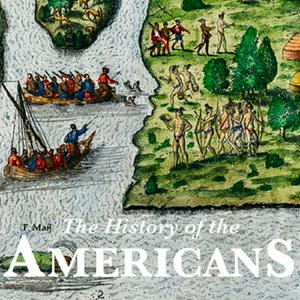
Get the free radio.net app
- Stations and podcasts to bookmark
- Stream via Wi-Fi or Bluetooth
- Supports Carplay & Android Auto
- Many other app features
Get the free radio.net app
- Stations and podcasts to bookmark
- Stream via Wi-Fi or Bluetooth
- Supports Carplay & Android Auto
- Many other app features


The History of the Americans
Scan code,
download the app,
start listening.
download the app,
start listening.


